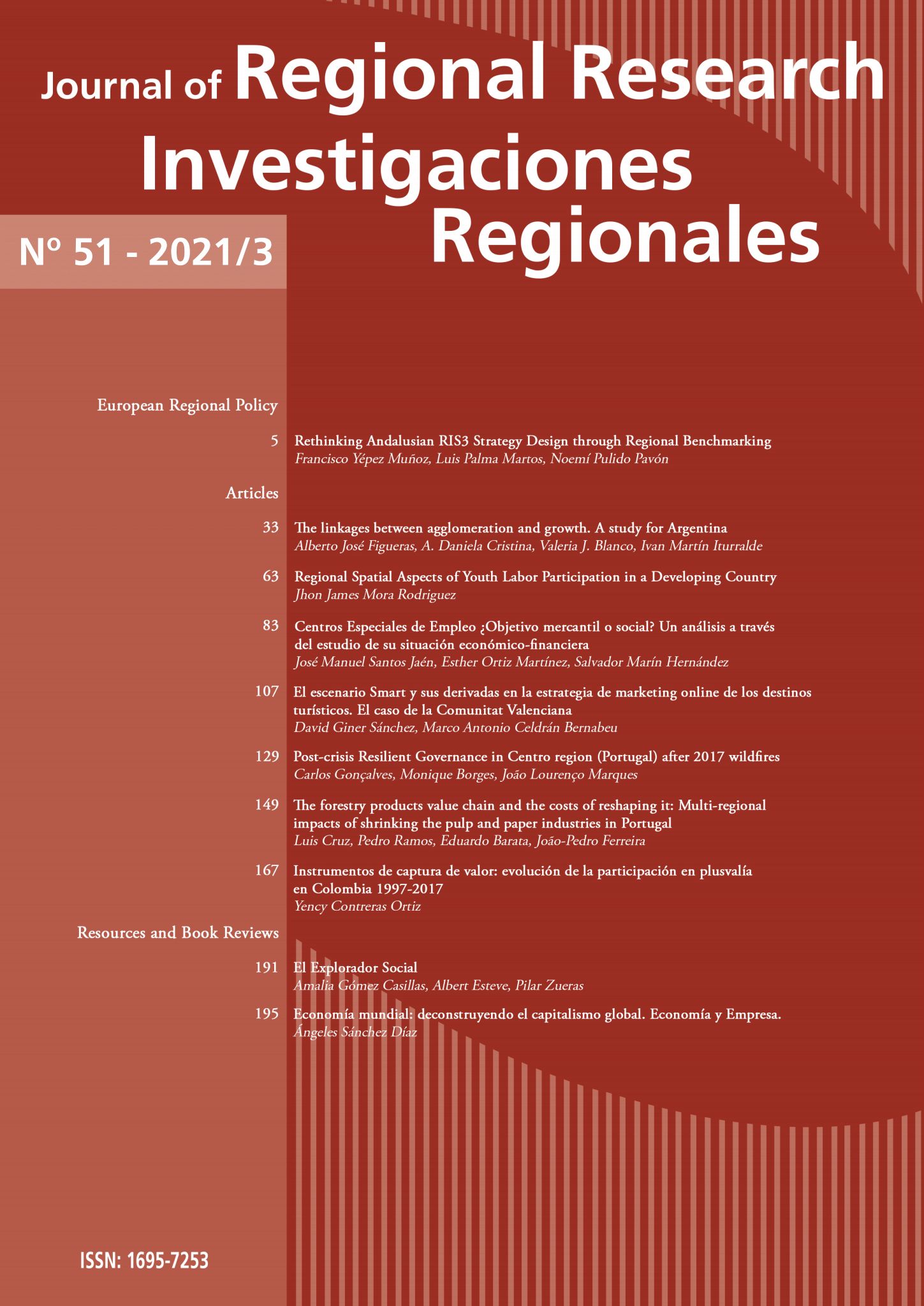La cadena de valor de los productos forestales y los costes de su remodelación: Impacto multirregional de la reducción de las industrias de pulpa y papel en Portugal
DOI:
https://doi.org/10.38191/iirr-jorr.21.023Palabras clave:
Cadena de valor, modelo de input-output multirregional, pulpa y papel, Portugal, silvicultura y explotación forestalResumen
Las evaluaciones macroeconómicas de la industria forestal tienden a subestimar su impacto en las economías regionales.
Este trabajo propone un concepto más amplio – la cadena de valor de los productos forestales- que incluye la contribución de las actividades que dependen (directa e indirectamente) de la silvicultura y los productos forestales. Con una metodología basada en un modelo de input-output multirregional y centrado en la economía portuguesa. Los resultados elucidan el papel del eucalipto en las producciones de pulpa, papel y cartón y artículos de papel y cartón. Finalmente, se evalúan las consecuencias macroeconómicas proyectadas para una reducción de estas producciones.
Descargas
Publicado
Número
Sección
Licencia
Aquellos autores/as que tengan publicaciones con esta revista, aceptan los términos siguientes:
En el momento de aceptar la publicación de sus artículos en Investigaciones Regionales / Journal of Regional Research, los autores acceden a utilizar la licencia Creative Commons CC BY-NC. IIRR/JRR es una revista abierta que permite a los autores retener el máximo control sobre su trabajo. Los autores aceptarán utilizar la licencia Creative Commons Attribution-NonCommercial. Esta licencia permite a cualquier persona copiar y distribuir el artículo con propósitos no comerciales, siempre y cuando se atribuya adecuadamente la atribución del trabajo a la revista y a los autores.


